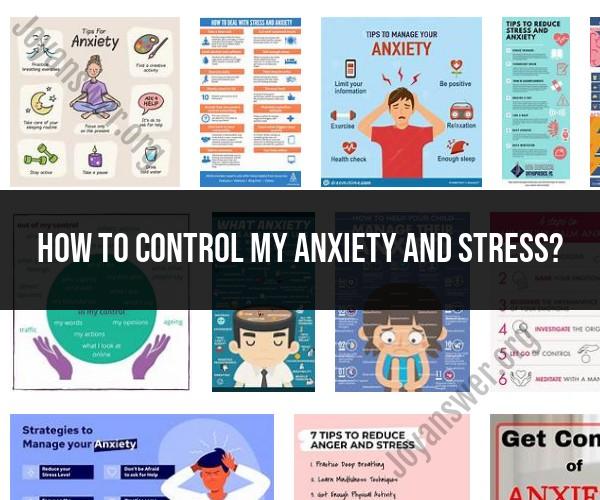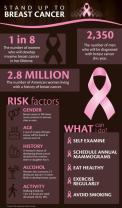How to control my anxiety and stress?
Controlling anxiety and stress involves adopting various practical techniques and strategies to manage your emotional and physical responses to stressful situations. Here are some effective ways to help you control anxiety and stress:
Identify Stressors:
- Recognize the specific situations, events, or thoughts that trigger your anxiety and stress. Identifying stressors is the first step in managing them.
Practice Relaxation Techniques:
- Deep Breathing: Practice deep, diaphragmatic breathing. Inhale slowly through your nose, hold for a few seconds, and exhale slowly through your mouth. Repeat this several times.
- Progressive Muscle Relaxation: Tense and then relax different muscle groups in your body. Start from your toes and work your way up to your head.
Mindfulness and Meditation:
- Mindfulness meditation involves focusing on the present moment without judgment. Regular mindfulness practice can help reduce anxiety and stress.
Exercise Regularly:
- Physical activity can release endorphins, which are natural mood lifters. Engage in regular exercise, whether it's walking, running, yoga, or any other activity you enjoy.
Healthy Diet:
- Consume a balanced diet with plenty of fruits, vegetables, whole grains, and lean proteins. Avoid excessive caffeine, sugar, and alcohol.
Adequate Sleep:
- Ensure you get enough quality sleep. Lack of sleep can exacerbate anxiety and stress.
Time Management:
- Organize your tasks and responsibilities. Prioritize important tasks and break them down into manageable steps. Avoid overcommitting.
Set Realistic Goals:
- Set achievable goals and expectations for yourself. Avoid perfectionism, which can be a significant source of stress.
Social Support:
- Reach out to friends and family for emotional support. Talking about your feelings can be therapeutic.
Limit Information Overload:
- Reduce exposure to news and social media if it contributes to your anxiety. Set boundaries on how much information you consume.
Positive Self-Talk:
- Challenge negative or catastrophic thoughts with more rational and positive self-talk. Replace "What if everything goes wrong?" with "I can handle challenges as they come."
Seek Professional Help:
- If your anxiety and stress are overwhelming or persistent, consider consulting a mental health professional, such as a therapist or counselor, for guidance and support.
Hobbies and Relaxation Activities:
- Engage in hobbies and activities you enjoy, whether it's reading, art, gardening, or listening to music. These activities can provide a welcome distraction from stress.
Cognitive-Behavioral Therapy (CBT):
- CBT is a therapeutic approach that helps individuals identify and change negative thought patterns and behaviors that contribute to anxiety and stress.
Medication:
- In some cases, medication prescribed by a healthcare professional may be necessary to manage severe anxiety or stress. Consult a doctor if you believe medication may be beneficial.
Practice Self-Care:
- Prioritize self-care activities that promote relaxation and well-being, such as taking a warm bath, practicing self-compassion, or spending time in nature.
Remember that managing anxiety and stress is a continuous process, and what works best for you may vary. It's essential to be patient with yourself and experiment with different techniques until you find the ones that are most effective in helping you control anxiety and stress in your life.











